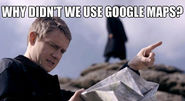-
About
- About Listly
- Community & Support
- Howto
- Chrome Extension
- Bookmarklet
- WordPress Plugin
- Listly Premium
- Privacy
- Terms
- DMCA Copyright
- © 2010-2025 Boomy Labs

 Natalie Pavlovska
Natalie Pavlovska
Listly by Natalie Pavlovska














Illogical and unlikely as it seems, decision-making in humans is ruled by the emotional brain. People decide first based on how they feel, and then justify that decision with what seems like a consciously balanced weighing of pros and cons.

There are plenty of comprehensive SEO toolsets on the market, so how do you pick the right one for your business? To help you decide, we take a look at the features and benefits of the most popular toolsets on the market.

What Successful SEO is a matter of constantly synchronizing ALL Advanced SEO Strategies while harnessing the changes in ways that create an advantage for you and, most importantly, discarding old strategies that could get you tossed into the penalty box. As a provider of a comprehensive SEO platform we are eager to substantiate our tools ...

What is the biggest challenge for today's website owners and digital marketers? It is to keep your target visitors as long as possible on your site and direct them softly to the end point of the conversion funnel that is a call-to-action.

Gianluca Fiorelli spotted a new Google test, or maybe a Google bug, where Google removed the descriptions from the search results listing page. All you see are clickable titles and URLs, but nothing in between. Typically, you'd see a description snippet, a line or two, describing the web page you are looking at in the Google search results.

Marketing, WordPress Last updated on I recently decided to migrate my "OKay Marketing" branding (okaymarketing.com) back to my personal branding on brianjackson.io. This included changing domains, social profiles, etc... I will walk you through below how I changed everything as I have surpisingly had quite a few people asking how I did it.

Local Search Association's (LSA) 2014 "Local Media Tracking Study" conducted by Burke, Inc. found that on average, mobile phones/smartphones are used to search the internet - across search engines, internet yellow pages, ratings and review sites and daily deals - 42% of the time compared to just 34% in 2013.

Reuters/Mark Blinch Google is considering putting itself in charge of online truth, in order to assist users in an age of information overload. The web giant would rank search results based on each site's 'truth score' instead of its popularity level.
